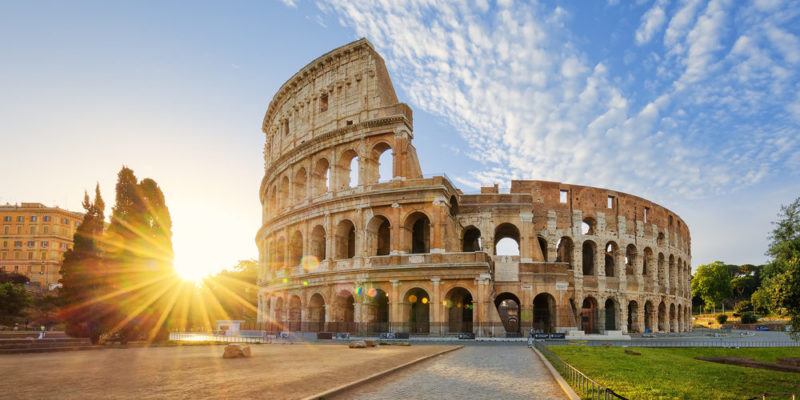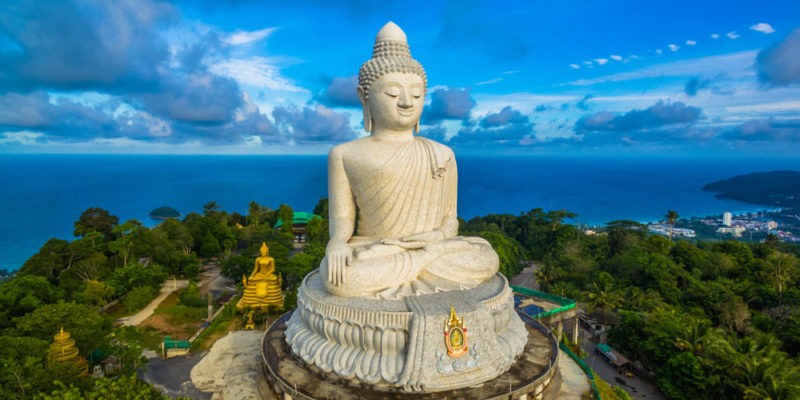We explain what Western culture is and what are the countries that make it up. In addition, its general characteristics, religion, politics and more.
What is Western Culture?
Western culture or Western civilization is called a loosely defined set of countries, cultures, languages and religions typical of the Western Hemisphere of the world, as opposed to Eastern cultures or civilizations, those of the East of the planet .
Western culture has as its cradle Egyptian , Sumerian and Greco-Roman antiquity , and encompasses the various cultures originating (or not) in Europe, North Africa, the Balkans and certain territories of the Middle East, especially those that were part of the Empire Roman or that are linked to the biblical and Christian tradition.
It is, however, a concept little rooted in the geographical , and more in the philosophical, artistic, ethnic and cultural traditions that define the Western and Eastern 'way of being' respectively. Western nations are supposed to share certain minimum defining features that, in their diversity , bring them together philosophically and culturally.
Origin of the Term West
The term 'West' came into use in Europe , in times before the imperial expansion of the Modern Era and the very idea of nation-states. It was used to distinguish by opposition citizens of Catholic Europe, often engaged in religious struggles against Islam , from those belonging to Arab, Slavic, African or Asian cultures, with whom they had historically tense relations.
Thus, the world began to be divided into two hemispheres: the Western, under European command, and the Eastern , under the command of the various Asian or Middle Eastern empires and kingdoms. This idea was later extended to European colonies in the world, many of which are not geographically located to the west, like Australia.
Definition of the West

There is no clear and concise definition of the West, as has been seen. But in general terms it could be summed up in five cultural coordinates common to all current Western nations:
- They base their philosophy on the heritage of Greek Antiquity .
- They base their jurisprudence on the Law of the Roman Empire .
- They base their theology on the Judeo-Christian tradition.
- They base their artistic conception on the European Renaissance .
- They base their sociological thought on the French Enlightenment .
Occidental Countries
In the contemporary world, the following countries are considered as the members of the Western world:
- Europe . United Kingdom ( England , Northern Ireland, Scotland, Wales), France , Spain , Italy , Belgium, Holland, Portugal, Switzerland, Austria, Germany , Ireland, Finland, Sweden, Finland, Denmark, Poland, Estonia, Latvia, Lithuania, Slovakia, Hungary, Slovenia, Croatia, Greece , Cyprus, Malta, Romania, Bulgaria and the so-called European “micro-states”, such as the Vatican or Luxembourg.
- America . The United States, Mexico , Canada, Colombia, Costa Rica, Guatemala , El Salvador, Panama, Cuba, Venezuela , the Dominican Republic, Peru , Brazil , Argentina , Uruguay , Paraguay , Chile , Ecuador , Puerto Rico, Bolivia , Belize, and Nicaragua Honduras.
- Africa . The Republic of South Africa.
- Middle East . Israel.
- Oceania . Australia and New Zealand.
-
Western Religions
 Although it is recognized that Christianity is the main religious and mystical support of the West, religions are recognized within:
Although it is recognized that Christianity is the main religious and mystical support of the West, religions are recognized within:
- Catholic. Whose sole representative is the Catholic Church based in the Vatican.
- Protestant. That brings together a set of Christian sects resulting from the reform of Martin Luther in the sixteenth century, such as the Lutheran, Calvinist, Anglican, Evangelical Churches, etc.
- Judaism . The Jewish nation, despite not being Christian, is recognized as part of Western religious thought.
The Western State

Western nations share certain defining features with each other, and that have to do with their political and philosophical heritage, as well as their particular formation process, as is the case of:
- Separation between State and Religion. Religion since the end of the Middle Ages was gradually displaced from political power and became an intimate, almost personal matter, which has nothing to do with the laws .
- Rule of Law. Western countries were built on the Roman notion of respect for the law, that is, that there is a set of rules of the game to which all citizens agree to submit and that regulate daily life.
- The rule of law. The exercise of citizenship in the West aims, at least in theory, at building a society in which all citizens are equal before the law and must respond to the same sanctions and enjoy the same rights without distinction.
- Consumer society. Despite the fact that there are nations that have tried to contravene this capitalist principle that orders societies around the production and satisfaction of their needs through capital (such as Cuba), and that not only Western nations are governed by said principle, He links it as such with Western consumerism, the fruit of bourgeois society and the Industrial Revolution .
Western Languages
Western languages are, broadly speaking, those derived from Indo-European, mostly derived from Latin , Slavic or Germanic languages, although some others such as Hungarian, Euskera (Basque), Finnish or the languages pre-Columbian cultures that survived the conquest do not have a known root.
Westernization

Many regions of the world have been forcibly Westernized , either through commercial mechanisms or cultural colonization, if not through the occupation of their territories by Western powers that have left their mark.
Such is the case of Japan , for example, whose Asian roots have nothing to do with the West, but which after the US occupation shows clear signs of Westernization.
The same could be said of the great European colonies in the world, such as some African, Asian countries or the same continents of America and Oceania.
Differences with the East

The philosophical, political and ethnic differences between the West and the East date from time immemorial. The ancient Greeks were constantly invaded by the Persian Empire , and their defensive military exploits (or offensive, such as the conquest of Troy, located in present-day Turkey) are part of the history (military, literary, political) of the West, as well as the Islamic sieges of Christian Europe, the crusades against the Moors in the 'Holy Land', or even in the 20th century the political and strategic struggle between the United States and its allies and the Soviet Union and the League of Arab Nations.
At the same time, it is often said that the East of the world is home to ways of life and philosophies that are complementary to the Western worldview, and thus an appreciation of ritual and mystical practices from India , China , and other Asian cultures has grown in the West.
Western Exceptions

The concept of 'the Western' does not seem to include cultures that, however, are very close to it both geographically and historically, such as the Viking Culture of Northern Europe , the Pre-Columbian American culture (what remains of it) or the African culture itself .
The decline of the West
Much has been said about the alleged decline of Western culture and civilization, especially after the painful imprint left by the 20th century and its two World Wars ( First and Second ), which led to numerous traumas and a kind of dead end in spiritual and philosophical matters.
The above content published at Collaborative Research Group is for informational and educational purposes only and has been developed by referring to reliable sources and recommendations from technology experts. We do not have any contact with official entities nor do we intend to replace the information that they emit.
MA student of the TransAtlantic Masters program at UNC-Chapel Hill. Political Science with a focus on European Studies. Expressed ideas are open to revision. He not only covers Technical articles but also has skills in the fields of SEO, graphics, web development and coding. .
Leave a reply
Your email address will not be published. Required fields are marked *Recent post

Sport: What Is It, Types, Risks, Features, Characteristics and Examples

Dogs: Emergence, Features, Characteristics, Feeding and Breeds

Story: Definition, Elements, Structure, Features and Characteristics

